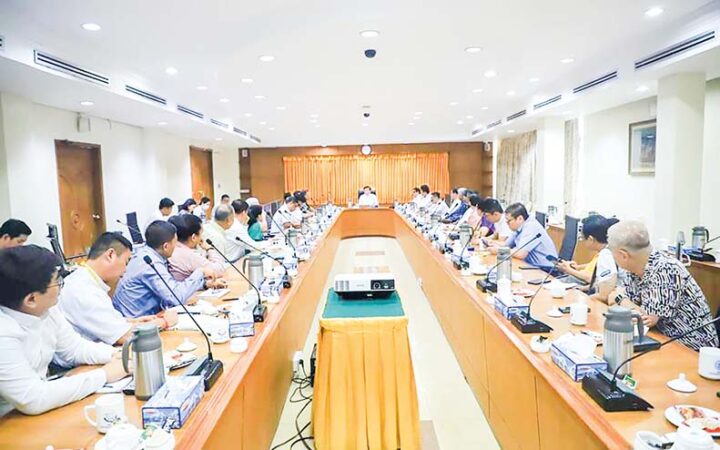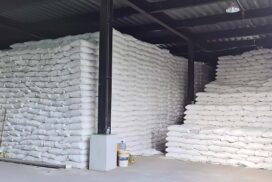Stakeholders in the edible oil industry including the Union of Myanmar Federation of Chambers of Commerce and Industry (UMFCCI), affiliated associations, edible oil importing companies, distributors and traders emphasized the price stability and edible oil security at the meeting held on 25 August at the UMFCCI.
UMFCCI president U Aye Win gave an opening remark that he attended the Union Committee on the Commodity Price Stability 1/2023 as one of the members. The UMFCCI will intensify coordination with the related businesspersons and the affiliated associations to secure the staple food (rice and edible oil) and ensure reasonable prices to lessen consumer concerns. Furthermore, he called for the edible oil importing companies to stop doubting one another and work together to reduce the price. They need to act now as it poses a burden to people.
Afterwards, the chair of the Edible Oil Dealers Association and officials highlighted matters to lower the oil prices, oil security plans in the market, cooperation plans of the edible oil companies, subsidy plans, selling oil at reference price by the companies, law enforcement on price manipulation and daily market reporting.
The Supervisory Committee on Edible Oil Import and Distribution under the Ministry of Commerce has been closely observing the FOB prices in Malaysia and Indonesia including transport costs, tariffs and banking services, and issuing the wholesale market reference rate for edible oil every week.
The wholesale reference rate of palm oil for the Yangon market was set at K4,065 per viss for a week from 21 to 27 August.
Nevertheless, the palm oil market price is exorbitantly high compared to the reference price.
If those edible oil retailers and wholesalers are found overcharging, storing inventory intentionally and attempting unscrupulous action to manipulate the market, they will face legal action under the Essential Supplies and Service Act, MoC released a statement.
The Ministry of Commerce is also trying to secure edible oil sufficiency, supervise the market to offer reasonable prices to the consumers, maintain price stability and mitigate the consumers’ concern over the possible shortage of palm oil.
At present, mobile market trucks operated by oil importing companies, in coordination with the Myanmar Edible Oil Dealers’ Association, were back to business in some townships on 17 July 2022 to offer palm oil at a subsidized rate. They offer palm oil at a fairer price to the consumers directly depending on the reference price. However, there are limited sources of supply although they directly sell the palm oil at reference rate depending on the volume quota.
The domestic consumption of edible oil is estimated at 1 million tonnes per year. The local cooking oil production is just about 400,000 tonnes. To meet the oil sufficiency in the domestic market, about 700,000 tonnes of cooking oil are yearly imported through Malaysia and Indonesia. — NN/EM
Stakeholders in edible oil industry discuss price stability
- August 26, 2023
- 298














